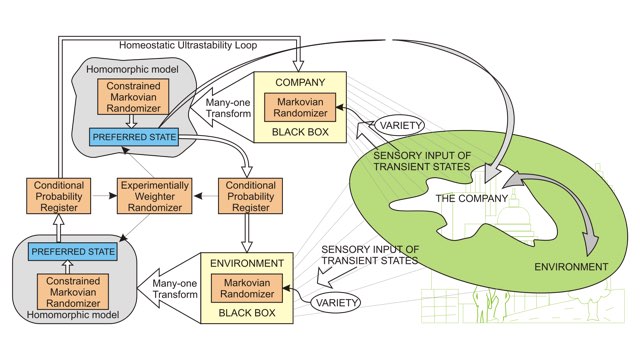
So in 1962, Beer was working on the idea of the automatic factory.
We can replace human workers with machines, at the assembly lines, and automate ordering more material and parts and what-not -- we take that for granted nowadays.
Beer wondering, could we replace the factory manager too? All the manager does is organise and stabilise, regularise the inputs and outputs, keep everything steady. It shouldn't be so hard. Could we make an artificial brain for the factory?
You can see why this is interesting to me.
While everyone else was working on the very beginnings of computers, Beer too a different turn. A self-organising system, he said, shouldn't need to have its circuits designed in detail, otherwise what is self-organisation good for?
We're pretty familiar with this idea. Wikipedia is crowdsourced, open source is somehow self-regulating, and free markets are sophisticated information processing systems -- none of these are designed in detail.
Beer reckoned that any self-organising system was as good as another.
So in theory you should be able to take any self-organising system - one that is good at achieving homeostasis, stability - hook it up to the right inputs and outputs in a language it understands... and then just turn it on.
What is a good example of such a system?
Matt Webb, Web Directions South 2014 (Sydney, Australia), October 2014